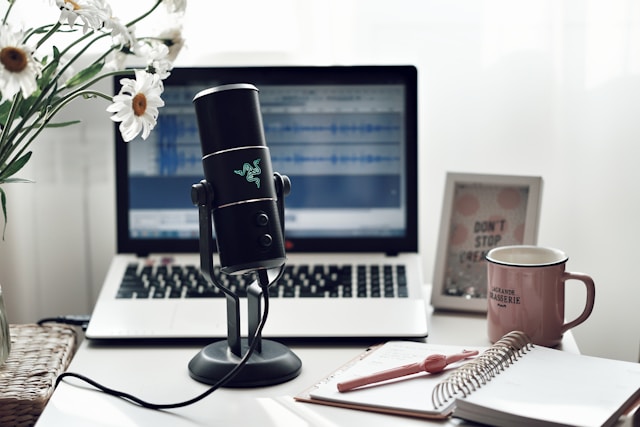Podcasts have changed how people follow the news. They combine the personal feel of radio with the ease of on-demand access. For many, listening has become part of their daily routine, whether during commutes or at home.
Growing Use of Podcasts for Journalism
In the past decade, podcast listening has grown quickly. Research from Edison shows that listeners in the United States jumped from 17 million in 2008 to over 100 million in 2023. Several things helped this growth: smartphones, better streaming apps, and a rising interest in niche stories.
Podcasts are now common in journalism for a few reasons. They give room for longer stories, letting journalists add more detail than they could in a short article or broadcast. The tone is often more casual and personal, which helps build trust with listeners for discussing personal preconceptions about slots not on GamStop.
This format also allows reporters to focus on specific subjects. Mainstream news may skip over detailed coverage, but podcasts can go deep into topics like local politics, social issues, or investigations. It’s a chance to reach listeners who want more than headlines.
Popular Journalism Podcasts
Some podcasts have set the standard in journalism. Below are examples of shows that found success through good storytelling and research.
| Podcast Name | Type | Key Features | First Released |
| Serial | True Crime | Investigative storytelling, case updates | 2014 |
| The Daily | Current Events | Daily deep dives, interviews | 2017 |
| Code Switch | Social Issues | Focus on race, identity, and justice | 2016 |
Serial
Created by Sarah Koenig and Julie Snyder, this podcast looked into real crime cases with a fresh approach. Its detailed coverage helped revive interest in a cold case and became a massive hit worldwide.
The Daily
Produced by The New York Times, it looks at one story each weekday. The mix of reporting and interviews helps simply explain complex news. Hosted by Michael Barbaro, it has become part of many people’s news routine.
Code Switch
This podcast from NPR focuses on race and identity. It blends interviews with reporting to highlight ongoing issues in society. The team’s thoughtful analysis has won praise for making tough subjects easier to understand.
How to Start a Journalism Podcast
Starting a podcast takes time and planning. Quality is important from the start, both in content and sound.
Pick a Topic and Target Audience
Focus on topics with depth that aren’t well covered in other places. A clear direction helps attract a regular audience.
Choose a Format That Works
Common formats include interviews, panel chats, and solo reporting. Pick one that matches your topic. Keeping the same style helps listeners know what to expect.
Basic Equipment to Start
You don’t need expensive tools, but sound matters. A decent microphone and headphones go a long way. Free or low-cost editing software can also produce strong results.
| Equipment Needed | Purpose |
| Microphone | Clear audio recording |
| Headphones | Audio monitoring |
| Editing Software | Trimming and sound quality |
| Hosting Platform | Publishing episodes |
Plan and Structure the Episode
Planning helps avoid long pauses or confusion. Write a short script or outline before recording. Keep the tone friendly and informative.
Focus on Research
Accurate facts matter. Spend time checking the story, finding sources, and building context. A good journalist always looks for clear and fair reporting.
Involve the Audience
Talk with your listeners. Let them leave feedback, ask questions, or suggest topics. This can build loyalty and help shape future content.
Share and Promote
To grow your podcast, get the word out. Use social media, email newsletters, or work with other podcast creators. Listing the show on major platforms like Apple Podcasts or Spotify can increase reach.
Be Consistent
Stick to a regular schedule, even if it’s once a week. Podcasts take time to grow. Success comes from patience and steady effort.
Where Podcasts May Go Next
Podcast use is expected to grow, helped by new tech. Smart speakers and voice assistants have made it easier to listen anytime. In the future, more shows may include interactive features or use virtual tools like AR or VR.
Some schools already use podcasts for teaching. They can explain topics freshly and offer different views. This shift shows podcasts have a place in both media and education.
Monetisation is another key area. Many podcasts are now supported by ads, paid content, or donations. These models help fund work without giving up editorial control.
Final Thoughts
Podcasts now play a big part in journalism. They give space for deeper stories, personal tones, and topics that aren’t always in the headlines. As the format continues to grow, it offers more tools for journalists to reach and connect with their audience.
For those willing to plan well and focus on quality, podcasting offers a fresh and rewarding way to share stories and news.



